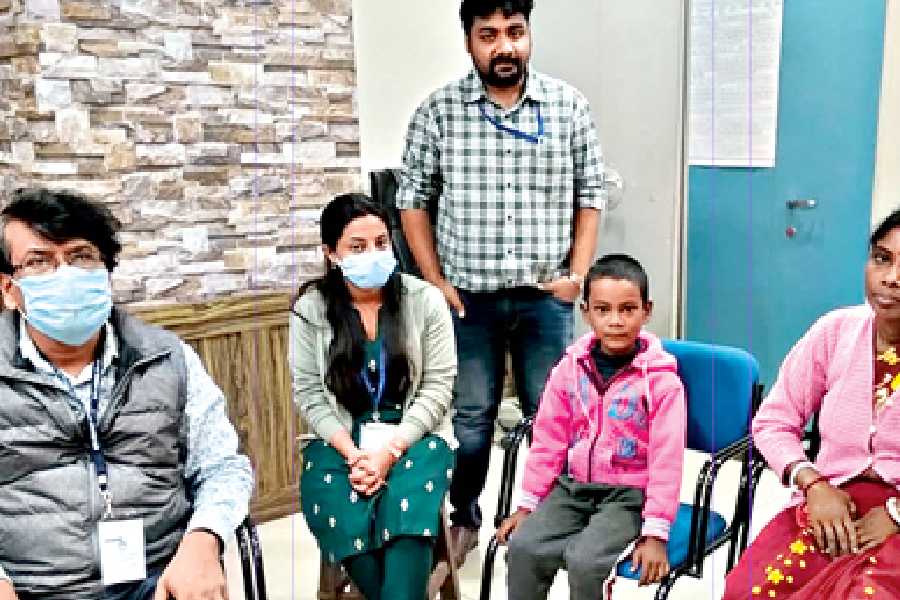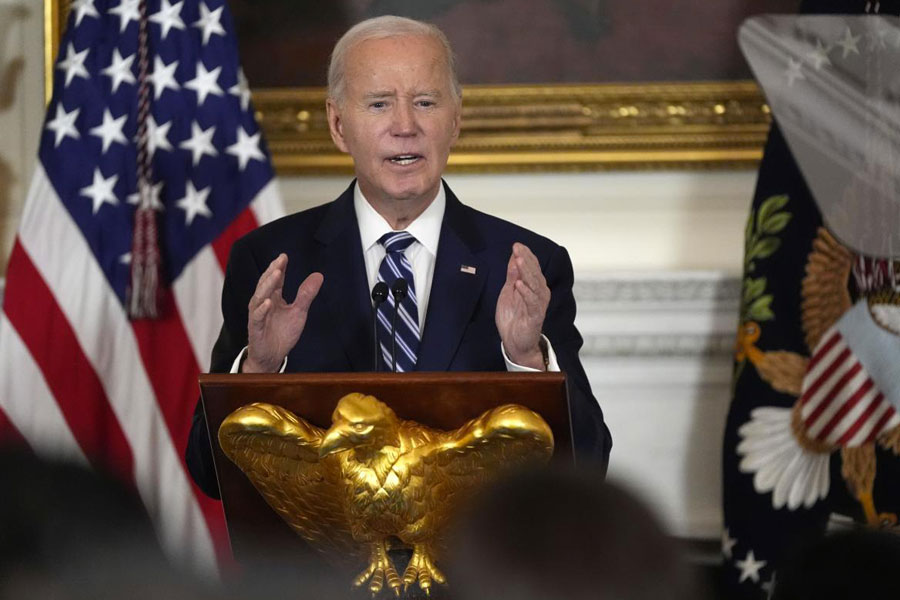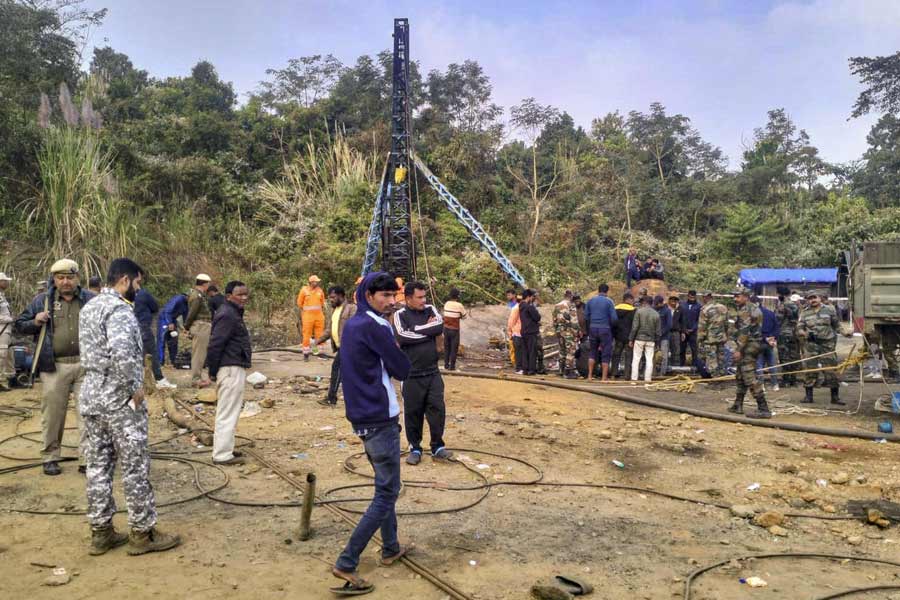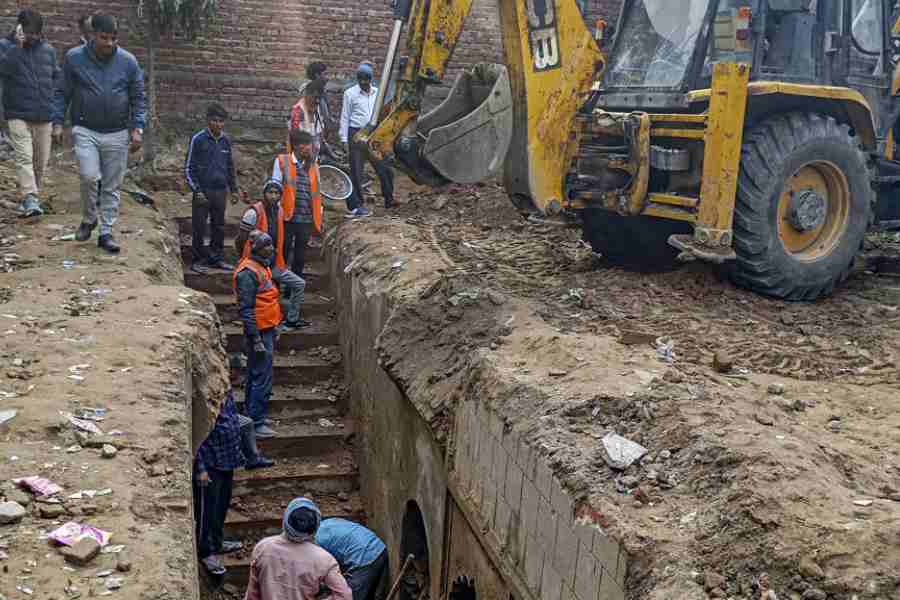A seven-year-old boy has just started to hear after a cochlear implant at a government hospital in the city last month.
Saheb Adak was born with “congenital deafness”. He came to the outdoor clinic of NRS Medical College and Hospital’s ENT department last February.
He was already six, an age when a cochlear implant surgery may fail to yield the desired result, said doctors.
But the doctors went ahead, partly enthused by Saheb’s mother’s unyielding determination that her younger son hear and speak.
On Friday, Saheb had come for a follow-up visit to the hospital. As doctors called out his name loudly a few times, he turned his head towards them. He said tata (bye) in response to others.
“He can now say baba, ma, dada, kaku and few other words,” said Gayatri Adak, Saheb’s mother. The family hails from East Midnapore’s Ramnagar.
“He was first given a hearing aid when he was three. After using it for nearly two years, we realised it had not helped Saheb in any way. We then wrote to a government agency in Mumbai but he had already turned five and they refused to fund the cochlear implant,” she said.
Disappointed, Saheb’s family came to Calcutta to purchase another hearing aid when a seller told them to try their luck at NRS. The family brought the boy to the hospital in February last year.
The possibility of success of a cochlear implant is best if it is done before the child turns five, said Sumanta Kumar Dutta, the head of the ENT and head and neck surgery department at NRS Medical College and Hospital.
“We performed the surgery on December 10. The implant is placed in the internal ear. An external device is placed in the outside ear. It catches sound and transmits it to the implant in the internal ear,” said Dutta.
“The boy has started to speak. The progress has been good. He will slowly pick up more words and start to speak more,” said Dutta.
Doctors said that a child’s speech is inextricably linked to what is heard. If a child cannot hear, the speech will not develop. “Now that he has started to hear, he will slowly start to speak more words,” said Dutta.
Saheb’s surgery was the first cochlear implant at NRS, said Pit Baran Chakraborty, the principal of NRS Medical College and Hospital.
“The implant device is very costly. We are not charging the family anything. We are trying to arrange some corporate social responsibility (CSR) funds. We are now ready to do more such surgeries,” said Chakraborty.
Saheb’s mother is a homemaker and his father works as a help in house construction or repairs.
Dutta said a central government scheme ADIP — Assistance to Persons with Disabilities for Purchase/Fitting of Aids /Appliances — that used to fund such implants for families than cannot afford it, has been discontinued.
“We are trying to include cochlear implants in the Swasthya Sathi scheme of the state government. If that happens, a lot of people will benefit,” said an official of NRS hospital.
Dutta said tests done at birth help identify if a child is deaf or not but many of those who are born with deafness don’t return for follow-ups. “They stop turning up. Motivating them to continue the follow-up till cure is a challenge,” he said.










